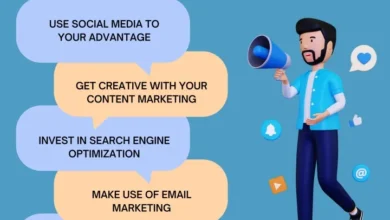
Businesses in today’s competitive digital market are always on the lookout for new ways to attract customers and increase sales. Marketers now have a potent new tool at their disposal thanks to personalization, which allows them to provide individualized experiences, deepening their connections with customers and increasing the likelihood of a sale being made. This article will discuss the future of personalization in the ever-changing digital world, the significance of customization in contemporary digital marketing, how to harness data for personalized campaigns, and numerous ways of personalization across different marketing channels.
The Power of Personalization: Statistics and Research
Numerous studies and research have highlighted the immense impact of personalization on consumer behavior and business performance. According to a survey conducted by Epsilon, 80% of consumers are more likely to make a purchase when brands offer personalized experiences. Additionally, a study by Accenture revealed that 91% of consumers are more likely to engage with brands that provide relevant offers and recommendations.
Why Personalization Matters in Modern Digital Marketing
In today’s age of information overload, consumers are bombarded with a deluge of marketing messages. In such a crowded marketplace, generic marketing tactics often fail to capture their attention. Personalization allows brands to break through the noise and create meaningful interactions with their audience.
By tailoring content, offers, and recommendations based on individual preferences and behaviors, businesses can demonstrate that they understand and care about their customers’ needs. This fosters a sense of loyalty and trust, which can significantly impact customer retention and brand advocacy.
Harnessing Data for Personalization
Central to the success of any personalization strategy is data – the invaluable resource that provides insights into customer behavior, preferences, and interests. Collecting and analyzing data effectively is the foundation of creating personalized experiences that resonate with each individual.
Collecting and Analyzing Customer Data
To deliver personalized experiences, businesses must first gather relevant data from various sources, such as website interactions, purchase history, social media engagements, and email interactions. Implementing data collection tools, such as cookies, web analytics, and customer relationship management (CRM) systems, can provide valuable information for segmentation and personalization efforts.
Ethical Considerations and Data Privacy
While personalization offers numerous benefits, it also raises ethical concerns regarding data privacy. Businesses must be transparent about their data collection practices and obtain explicit consent from customers before utilizing their information for personalization purposes. Compliance with data protection regulations, such as the General Data Protection Regulation (GDPR) and the California Consumer Privacy Act (CCPA), is crucial to build trust with customers and avoid potential legal issues.
Personalizing Content and Product Recommendations
Dynamic Website Content and Landing Pages
Dynamic content enables marketers to tailor website experiences in real time based on user behavior and preferences. By analyzing data on past interactions, location, and browsing history, businesses can present visitors with relevant content, images, and offers, increasing the likelihood of conversion.
Product Recommendations Based on User Behavior
E-commerce platforms can leverage customer data to deliver personalized product recommendations. By employing collaborative filtering algorithms and machine learning, businesses can analyze previous purchases, browsing history, and similar user profiles to suggest products that align with each customer’s interests.
Email Marketing Personalization
Personalized Email Campaigns and Segmentation
Email marketing remains a highly effective communication channel, and personalization takes it to the next level. By segmenting the email list based on demographics, past purchases, or engagement levels, businesses can create targeted campaigns that cater to specific customer groups.
Using Customer Data to Craft Engaging Emails
Beyond addressing recipients by their names, personalized emails can include tailored content, product recommendations, and exclusive offers. Analyzing email open rates, click-through rates, and conversion rates allows marketers to fine-tune their email campaigns for optimal results.
Personalization through Social Media
Targeted Advertising and Custom Audiences
Social media platforms offer powerful tools for targeted advertising, enabling businesses to reach specific segments based on interests, behaviors, and demographics. Creating custom audiences and lookalike audiences can help businesses expand their reach to potential customers with similar attributes to their existing ones.
Tailoring Social Media Content for Specific Segments
In addition to targeted ads, businesses can personalize organic social media content to cater to different audience segments. Customizing posts, stories, and interactive content can lead to increased engagement and foster a sense of community among followers.
Implementing Personalization in E-commerce
Personalized Shopping Experience
In e-commerce, personalization goes beyond product recommendations. Implementing features like personalized search results, user-specific pricing, and tailored promotions can create a seamless shopping experience that keeps customers coming back.
Abandoned Cart Recovery and Personalized Offers
Abandoned cart emails that remind customers of their pending purchases, combined with personalized offers or discounts, can significantly increase the chances of conversion. Understanding the reasons behind cart abandonment and addressing customer concerns can improve overall conversion rates.
Measuring the Effectiveness of Personalization
Key Metrics for Evaluating Personalization Success
To assess the impact of personalization efforts, businesses need to track and measure key performance indicators (KPIs). These may include conversion rates, revenue generated, customer retention, and customer lifetime value (CLV). A comprehensive analysis of these metrics can provide valuable insights into the effectiveness of personalization strategies.
A/B Testing and Iterative Improvements
A/B testing enables marketers to compare the performance of personalized content against non-personalized versions. Iterative improvements based on testing results can lead to more refined and effective personalization strategies over time.
Ensuring Data Security and Building Trust
Data Protection Practices
As data breaches and privacy concerns continue to make headlines, businesses must prioritize data security. Implementing robust cybersecurity measures, encrypting sensitive data, and regularly auditing data handling processes are essential to safeguard customer information.
Building Customer Trust through Personalization
Transparency and clear communication about data usage are vital to building trust with customers. Offering personalized experiences while being upfront about data collection and usage can instill confidence in consumers that their information is handled responsibly.
The Future of Personalization
AI and Machine Learning in Personalization
The future of personalization lies in advancements in artificial intelligence (AI) and machine learning. AI-powered algorithms can process vast amounts of data, providing deeper insights into customer behavior and preferences. As AI continues to evolve, personalized experiences will become even more refined and accurate.
Balancing Personalization with User Privacy
As personalization becomes increasingly sophisticated, finding the right balance between tailoring experiences and protecting user privacy will be a crucial challenge. Businesses must continue to prioritize data ethics and respect user preferences, ensuring that personalization efforts remain welcome and beneficial to customers.
Conclusion
To sum up, personalization is an essential part of digital marketing nowadays. Companies may enhance their conversion rates, customer loyalty, and engagement by using data to create more personalized experiences for their customers. Personalization’s potential is expanding as technology develops, but the field needs cautious navigation to avoid compromising users’ rights to privacy. Businesses may flourish in today’s rapidly changing digital environment by embracing ethical data practices and putting customer trust at the forefront.





